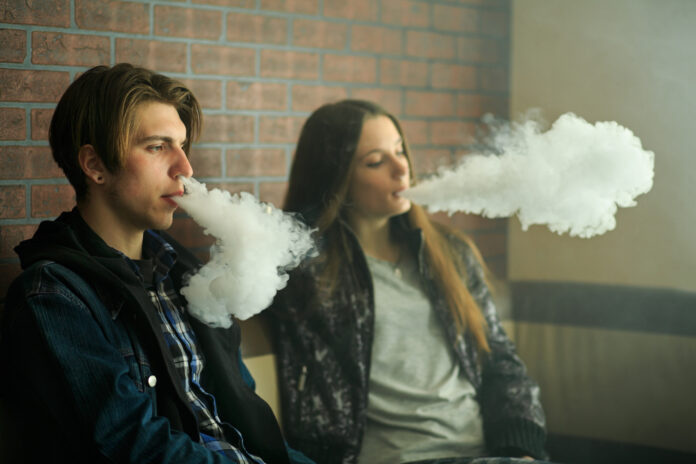San Francisco’s City Board of Supervisors voted to advance a bill that would ban smoking inside private dwellings located in an apartment with three or more units. The bill, filed on November 12, applies to smoking tobacco, vaping, and cannabis products.
The ultimate motivating factor for this legislation lies in the argument that non-smokers in the building have the right to breathe clean air, which they cannot do if their neighbors smoke in their private premises. This bill applies not only to private dwellings in units, but also to private patios and balconies. San Francisco currently bans smoking in common areas of multi-unit complexes as well as all public spaces.
The board’s Public Safety and Neighborhood Services Committee voted November 12 to progress the legislation to the next phase, which is a full board vote. This vote is expected to take place on December 1.
The ideals behind this smoking ban are inherently anti-liberty. Individuals are more than capable, and better equipped than lawmakers, to determine what is best for them in their own homes. Furthermore, infringing on one’s ability to smoke, particularly in regards to using vaping and e-cigarettes in their own home is dangerous for tobacco cessation efforts.
E-cigarettes have emerged as an effective smoking cessation tool, with a recent study in the New England Journal of Medicine finding their use to be “twice as effective” as nicotine replacement therapy (i.e. gums and lozenges), in helping smokers quit. Since their introduction to the U.S. market in 2007, an estimated three million American adults have used these products to quit combustible cigarettes.
Ultimately, this bill would override Bay Area residents’ rights in another example of government overregulation.
The Obama administration enacted a national ban on smoking in 2018, which prohibited smoking in and near public housing throughout the country, affecting 1.2 million households in units managed by around 3,300 local agencies. This ban disproportionately affected low-income individuals who tend to live in federally subsidized public housing more than other segments of the population.
Generally, lower-income Americans spend a larger share of their disposable income on cigarettes, vaping, and tobacco products, which means that this indoor smoking ban would also excessively impact impoverished and working-class San Francisco residents.
Furthermore, the bill’s sponsor, Supervisor Norman Yee, stated that a reason for this ban ties into the coronavirus pandemic. “Smoke easily moves between units and buildings. Now that more of us work from home, it’s more important than ever,” Yee said. However, if smokers cannot smoke in their homes or on their patios and balconies, that means more residents will congregate in the streets, which would go against the city’s COVID-19 shelter-in-place orders.
According to the bill, residents found violating the ban would first be issued written warnings, but then could potentially face a fine of up to $1,000 for subsequent violations. According to city estimates, about 12 percent of San Francisco adults smoke cigarettes, about 20 percent of adults have used e-cigarettes, and about 60 percent of adults use cannabis. Meanwhile, about half of the city’s residents live in multi-unit buildings that would be subject to the ban.
This ban would punish lower-income individuals and renters who cannot afford to live in single-family or completely private residences. The average rent in San Francisco rings in at approximately $3,5000 per month for a one-bedroom apartment, according to Investopedia.
Those who have argued against smoking bans in private homes have often contended that the proposed policy violates “the fundamental right to engage in a legal activity in a private home.” Many also argue it encroaches upon the “equal protection” clause of the Fourteenth Amendment.
Over the years, San Francisco officials in general, and the Board of Supervisors in particular, have intruded upon the rights of smokers by banning smoking for people standing in lines at ATMs, movie theatres, takeout lines, bus stops, and transit stations. This was extended in 2014 to include vaping products and e-cigarettes. Furthermore, the sale of menthol cigarettes and all flavored tobacco and vaping products were banned in 2017.
In short, this bill is an outsized infringement on renter’s rights and Americans’ fundamental liberties in a time when people are forced to stay in the confines of their own home, particularly in a state such as California, given Gov. Newsom’s overzealous lockdown and shelter-in-place orders. The impending fines that would go into effect if this bill were to pass would be another attempt at unreliable sin tax funding for San Francisco’s $1.5 billion deficit. The City Board of Supervisors should look to cutting costly city-run programs instead of looking towards flippant attempts at sin taxes that go hand in hand with egregious overregulation.











